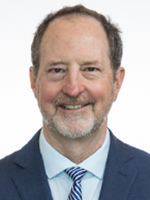
Prostates never stop growing, but this does not necessarily increase the risk of developing the most common cancer among men.
Prostate cancer is the fourth leading cause of cancer in Canada—around 20,000 Canadian men were diagnosed with the condition in 2020. Most diagnoses occur among men over the age of 50. While symptoms of prostate cancer can be difficult to detect, our Vancouver Coastal Health Research Institute expert, Dr. Michael Cox, outlines essential insights all men should bear in mind as they age.
Q: Am I more likely to get prostate cancer if my father had it?
A: Yes, you are. We know that one in nine men will be diagnosed with prostate cancer in their lifetimes, and if they have a brother or father who has it, that percentage increases two-fold because of the fact that they share a similar gene pool.
All cancers can be segregated into three groups:
- Sporadic—the most common, this is when there is no identifiable precursor to the development of the cancer.
- Familial—when multiple family members develop a type of cancer, but there is no obvious genetic connection.
- Hereditary—while this group is the rarest of the three, the risk of developing cancer among individuals in this category is very high and is linked to a specific inherited genetic mutation. For example, people with mutant BRCA 1/2 genes are more likely to develop certain breast, ovarian, prostate or pancreatic cancers.
Q: How can I lower my risk of getting prostate cancer?
A: Prevention is the holy grail. Outside of factors associated with a person’s genes, age and race, which can increase the risk of developing prostate cancer, there are many lifestyle changes that men can make to stay healthy and prevent cancers of all types. Eating a balanced and largely plant-based diet that is low in animal fats is one way. Smoking is a risk factor, so cutting that out is important. Men should exercise regularly and maintain a healthy body mass index. Tomatoes and tomato products have been associated with a reduced risk of cancer, as have minerals such as selenium—found in such foods as seafoods, organ meats and Brazil nuts.

Q: How is prostate cancer detected? Can I get routine screenings?
A: Often erectile dysfunction, blood in the urine, pain in the lower back and other symptoms associated with prostate cancer can be chalked up to other things, such as alcohol consumption or a flu. For this reason, men should receive a regular digital, i.e., finger, rectal exam from their family physician. If the digital exam detects a prostate abnormality, their family doctor may recommend a Prostate Specific Antigen (PSA) test, which provides a bit more detail about the status of their prostate. Further diagnostic interventions can include MRIs, ultrasounds and needle biopsies.
The good news is that, because of the number of treatments now available, along with our ability to detect the disease early and classify men into different categories of disease severity, a man diagnosed with prostate cancer today has a 95 per cent chance of being alive in a decade. This is especially encouraging since the median age of diagnosis is 68 years old.
Q: What is an enlarged prostate (benign prostatic hyperplasia) and how is it related to prostate cancer?
A: As men age, their prostate continues to grow naturally. A 20-year-old man will have a prostate the size of a strawberry or walnut. Later in life, a man’s prostate can grow to the size of an orange or softball, which is defined as an enlarged prostate. However, this is benign overgrowth and not malignant. There is no evidence linking benign prostatic hyperplasia to prostate cancer.



